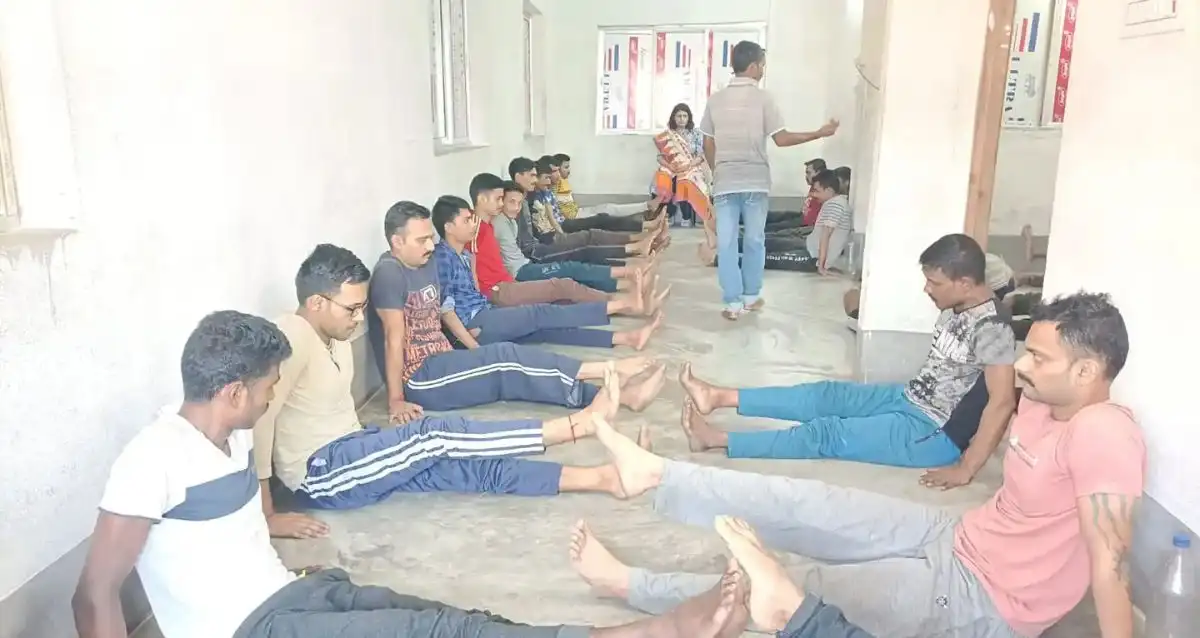Phase-Wise Rehabilitation: A Structured Path to Recovery
At Somorpon Foundation, we understand that recovery from drug and alcohol addiction is not a one-time event, but a step-by-step journey of transformation. Our treatment program is grounded in the Therapeutic Community (TC) model, combined with evidence-based therapies, and follows a structured, phase-wise approach. This ensures that each individual receives the right support at the right time as they move from crisis to stability, and finally, to independent living.
Each phase is carefully designed to promote growth, self-awareness, discipline, and community integration. Here is how our phase-wise rehabilitation process works:
Phase 1: Admission and Orientation
The first phase begins with assessment and admission, where we evaluate the client’s physical, psychological, and emotional condition. During this phase, the individual is introduced to the rules, routines, and values of the therapeutic community.
Key features:
- Medical detoxification if necessary
- Psychological evaluation and individual care plan
- Orientation to TC model and community expectations
This phase helps individuals stabilize physically and mentally, and prepares them for deeper therapeutic work.
Phase 2: Treatment and Therapy
This is the core phase of the rehabilitation program, where residents actively participate in individual counseling, group therapy, behavioral interventions, and skill-building sessions (like communication skills etc). The focus is on addressing the root causes of addiction, changing destructive behavior patterns, and developing healthy coping strategies.
Key components:
- Daily group therapy and individual sessions
- Psychoeducation on addiction and relapse prevention
- Anger management, emotional regulation, and communication skills
- Family involvement and therapy (where appropriate)
This phase nurtures self-reflection, emotional healing, and social responsibility.
Phase 3: Responsibility and Role Building
As clients progress, they take on more responsibilities within the community. This phase reinforces accountability, discipline, leadership, and teamwork. Residents act as peer mentors, group leaders, or coordinators of community activities.
Highlights:
- Internal work roles (kitchen, cleanliness, logistics)
- Peer mentorship and community service
- Structured daily routine with time management
- Decision-making and conflict resolution practice
This phase prepares individuals for independent functioning and social reintegration.
Phase 4: Pre-Release and Reintegration
In the final stage, the focus shifts to life outside the rehabilitation center. Residents work on building practical skills to live a substance-free life, including job readiness, financial literacy, and healthy lifestyle planning.
Activities include:
- Vocational training or career guidance
- Family reintegration planning
- Housing and employment preparation
- Relapse prevention strategies and aftercare planning
Residents leave with a personalized recovery plan, along with a strong support system to sustain their progress.
At Somorpon Foundation, our phase-wise rehabilitation model is not just about abstinence—it’s about rebuilding lives from the ground up. Every step, from admission to reintegration, is designed to support lasting recovery and the creation of a new, drug-free identity.











